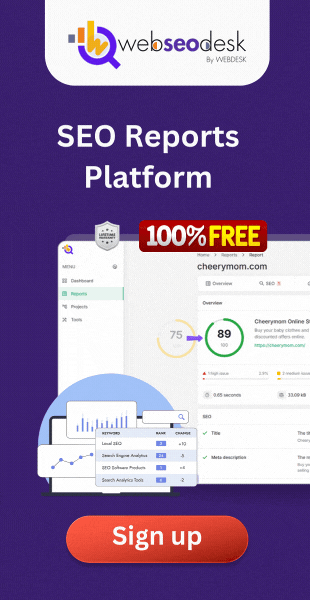Evaluating and enhancing the efficiency of SEO plans depends much on analytics. Without appropriate measurement and analysis, one cannot grasp the results of your efforts or pinpoint areas needing development. We will discuss in this post how analytics tools and methods assist informed decision-making and help evaluate SEO effectiveness.
- Monitoring Natural Traffic
Organic traffic—that is, the count of visitors to your website resulting from search engine searches—is one of the main indicators in SEO. Google Analytics, among other analytics tools, lets you:
Track organic traffic over time.
Sort the pages according to highest visit frequency.
Once users get on your website, know how they behave.
Examining natural traffic will help you ascertain whether your SEO initiatives are drawing additional visitors.
- Performance Evaluation of Keywords
SEO is fundamentally based on keywords; hence, monitoring their effectiveness is vital. Google Search Console and other analytics tools offer an understanding of:
Which keywords create impressions and clicks?
Your website’s average position for given search phrases.
Target keywords’ click-through rates (CTR).
This information lets you maximize your material for high-performance keywords and spot chances to raise other people’s rankings.
- Bounce Rate and User Engagement Measures
Metrics of user engagement—bounce rate, duration on page, pages per session—offer insightful analysis of how users interact with your website. A high bounce rate can suggest that
Your material has nothing bearing on user intent.
Your website has poor navigation or slow loading rates.
By means of improved content and user experience, these criteria can be raised, thereby improving the SEO performance.
- Examining Backlinks Data
Since they show search engines authority and relevancy, backlinks remain a major determinant of SEO success. Ahrefs and SEMrush are among the analytics tools that let you:
Count and mark the backlinks to your website in quality.
List the referring domains with the highest traffic volume.
Track broken backlinks for healing.
Good backlink data enables you to create a strong link-building plan, therefore increasing the authority and rating of your site.
- Tracking Convergence
SEO goes beyond simply increasing traffic to include measurable outcomes like leads, sales, or sign-ups. Analytics tools let you monitor conversions and credit them to particular sources—like natural search. Knowing which pages or keywords generate the most conversions can help you to improve your return on investment approach.
- Mobile and Device Effectiveness
Analyzing mobile performance is vital since search engines now give mobile-first indexing top importance. Evaluate using analytics tools:
How well your site runs on several devices.
Load times and bounce rates are among mobile-specific measurements.
Maximizing for mobile consumers guarantees enhanced SEO results and better user experience.
- Finding Technical SEO Problems
Technical SEO problems that could impede performance—such as these—are also discovered with analytics tools:
Link breaks or crawl mistakes.
Pages with delayed loads.
Double or absent metadata.
Dealing with these problems guarantees that your website is totally search engine crawler and user compatible.
- Examination of Competitors
Analytics tools reveal information on the SEO tactics of your rivals, including their keyword ranks, traffic sources, and backlink profiles. This data helps you to evaluate your performance and spot chances to beat rivals.
- Establishing and Evaluating Objectives
Good SEO practices are goal-oriented. Using analytics tools allows you to create particular objectives—such as a 5% conversion rate or a 20% increase in natural traffic—and then monitor your advancement toward them.
- Ongoing Enhancement
SEO calls for continual monitoring and changes; it is not a one-time project. Analytics lets you spot patterns, track new strategy success, and keep ahead of algorithm changes.
In essence, any effective SEO plan is built on analytics. Tracking important indicators, including organic traffic, keyword performance, and user interaction, can help you to get practical understanding to guide your work and provide better outcomes. In the always-shifting terrain of SEO, routinely evaluating and adjusting your strategy guarantees long-term success.












0 Comments